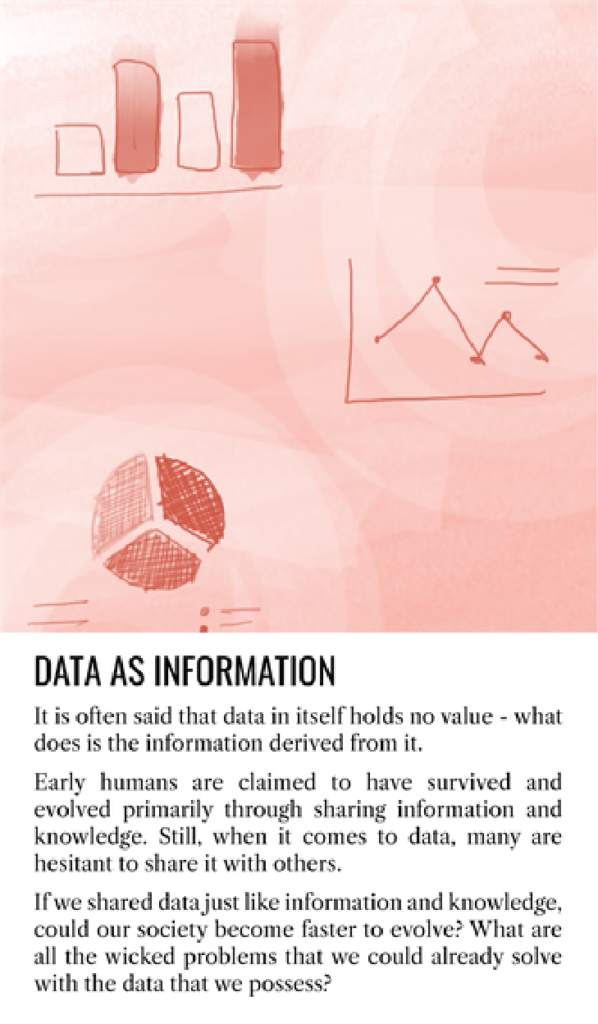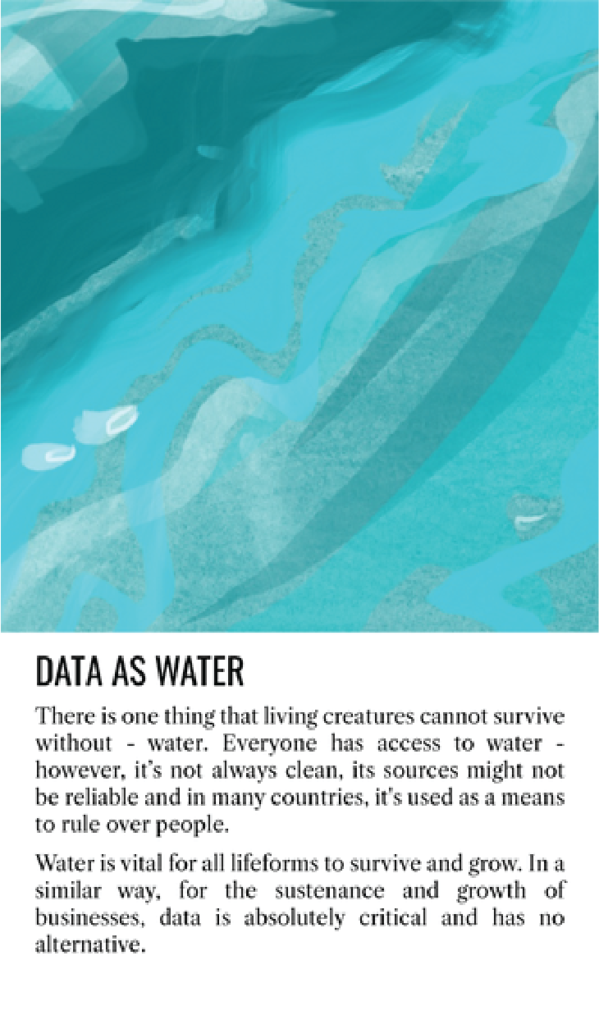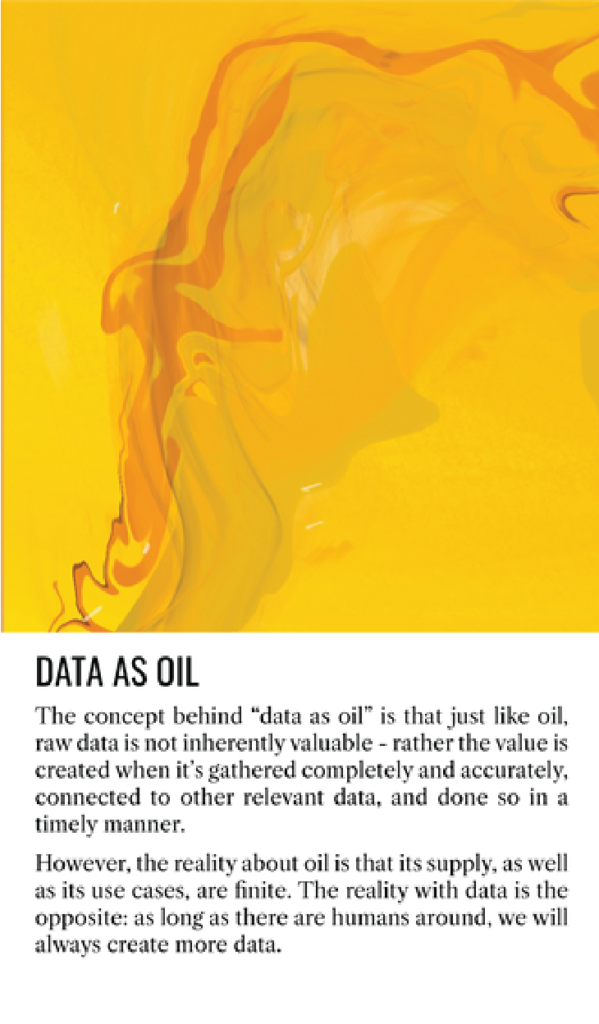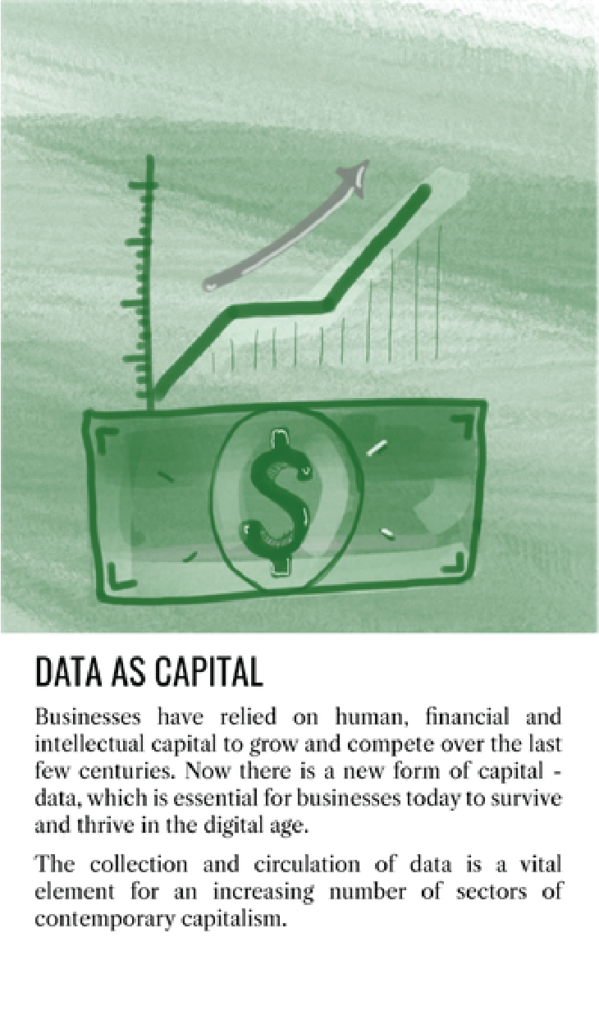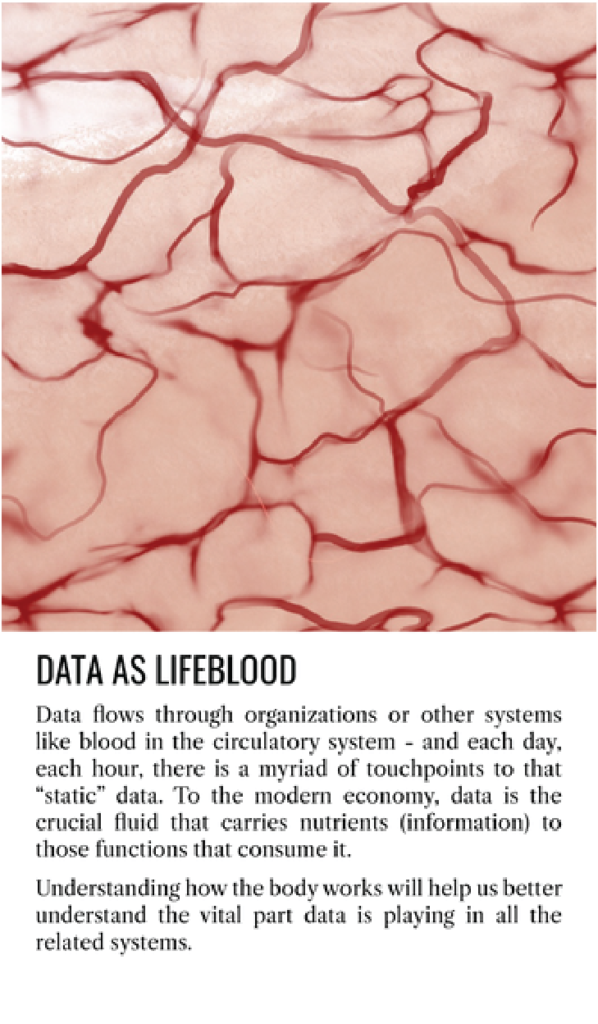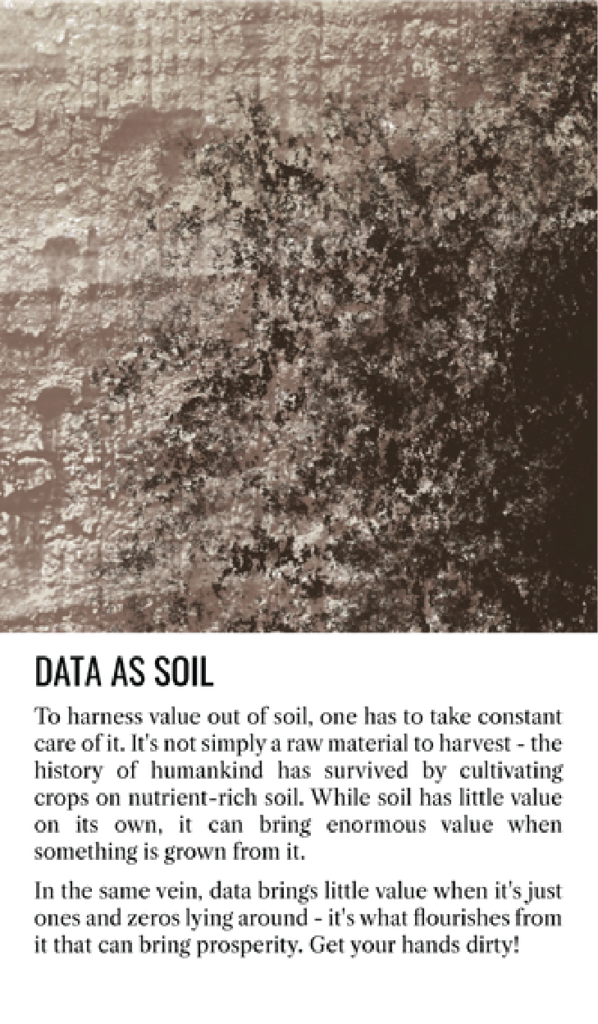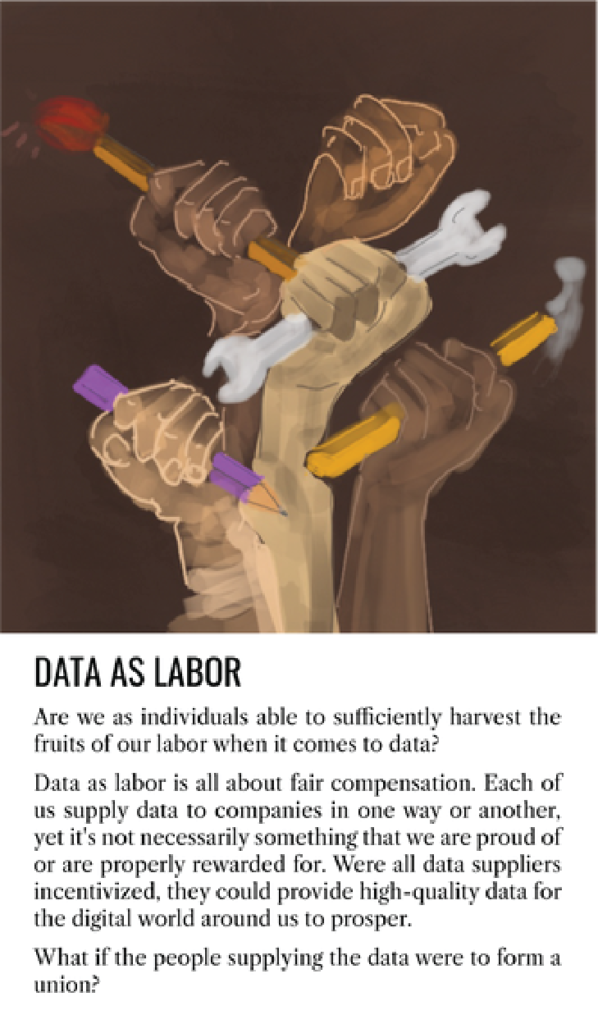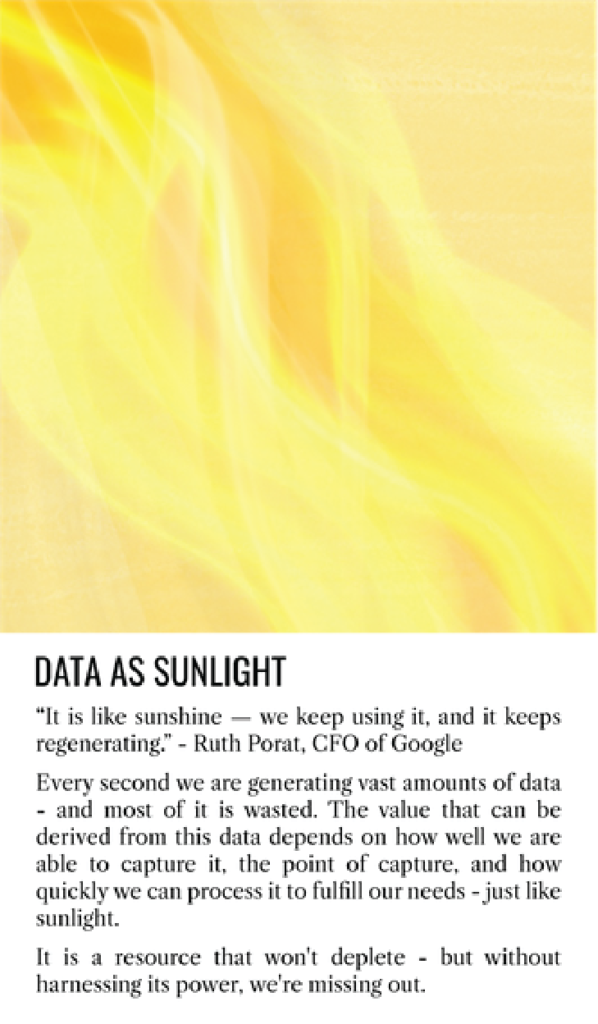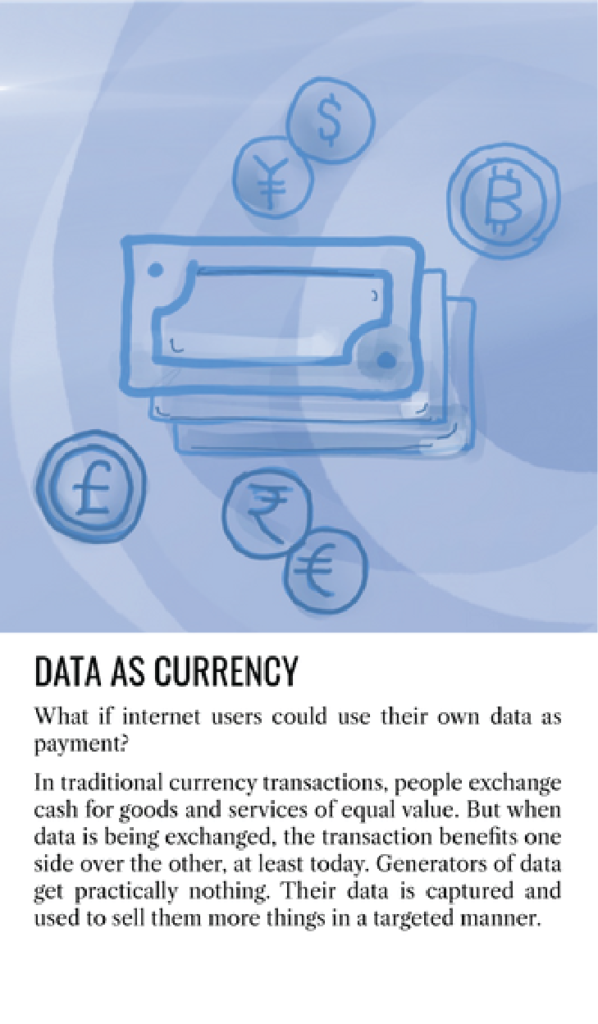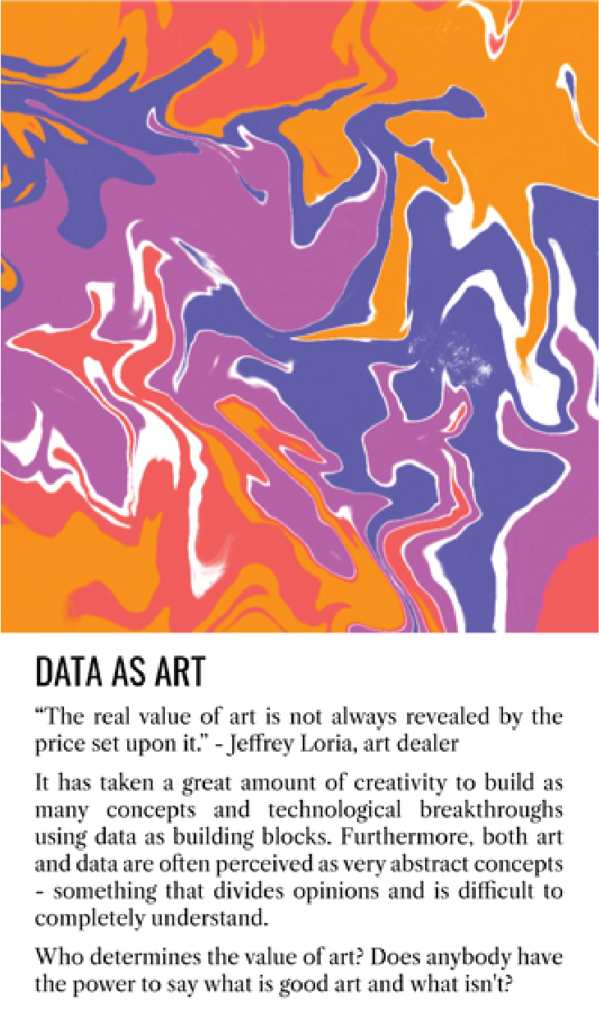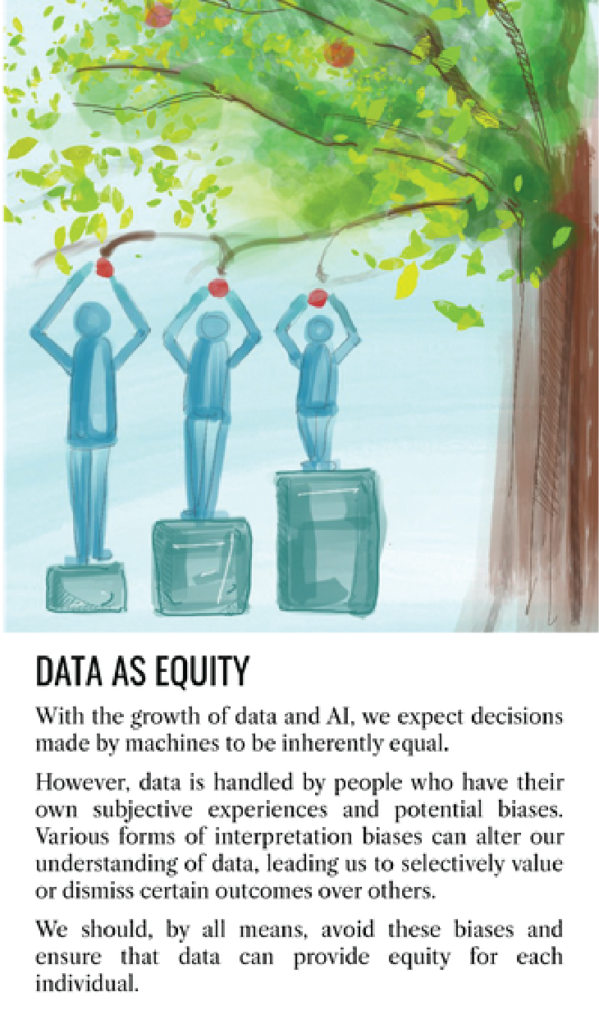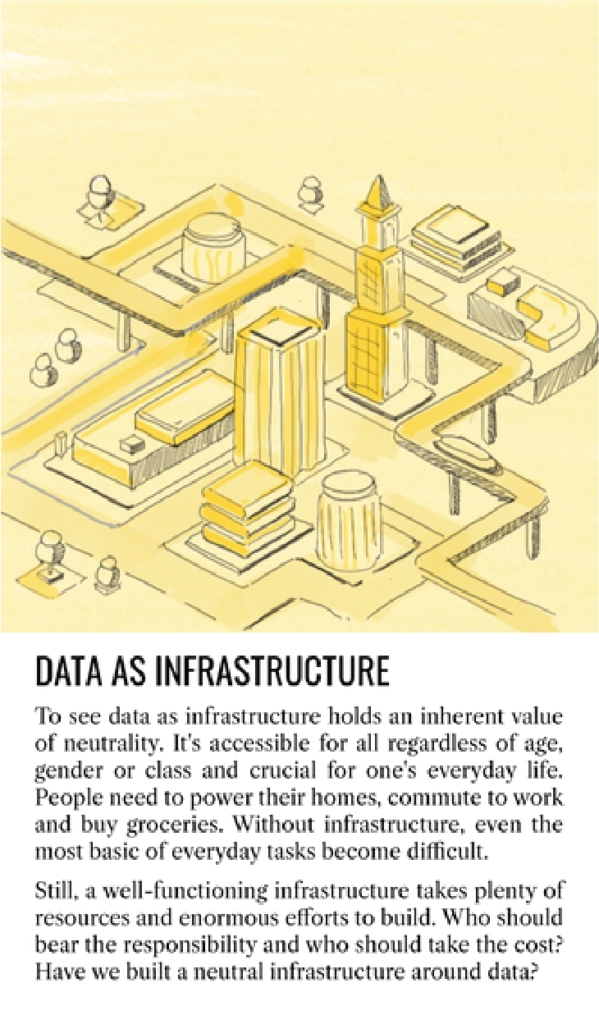
2. Data and data as anti-rival
Data and information are one of the most typical examples of anti-rival goods, so let’s investigate it in detail.
What do we mean by data?
Although we likely all have an idea of what data is, it can be a bit ambiguous when we attempt to define it. When we search for definitions of data, we come up with a few things:
- “information, especially facts or numbers, collected to be examined and considered and used to help decision-making, or information in an electronic form that can be stored and used by a computer” (Cambridge Dictionary)
- “individual facts, statistics, or items of information, often numeric.” (Wikipedia)
To put it simply, data is a unit of information. There is not one singular way to record data, or even one form of data. Here are some examples of data:
- Recordings of temperature can be used to track the rate of climate change.
- Exam scores can help teachers understand what material to review.
- The ads you click allow marketing experts to show you more relevant ads.
- The year you were born can help your doctor better provide healthcare.

Data as oil
The phrase “Data is oil” has appeared in newspaper, TED talks, opinion pieces, and books. Mathematician Clive Humby is most credited with originating this phrase, and it is intended to mean that data provides the opportunity to make a lot of money. Like oil, data requires processing and refining to make it useful, and it can be sold to a lot of people.
Other metaphors for data
Although there are some useful comparisons, not everyone agrees with this argument. Unlike oil, data is essentially unlimited, and it can be used over and over again in different ways.
Students at Aalto University in Finland have introduced twelve metaphors for data (including data as oil). As an optional activity, review the data metaphor cards here, and select which you think is most fitting.
The twelve cards can be viewed below, at this link: here. If interested, you can read the entire report, available here.
